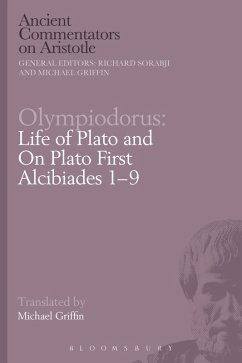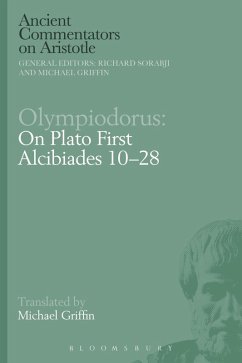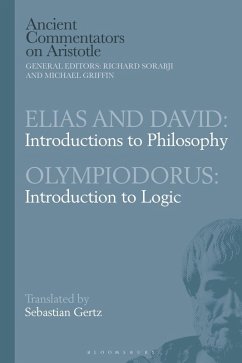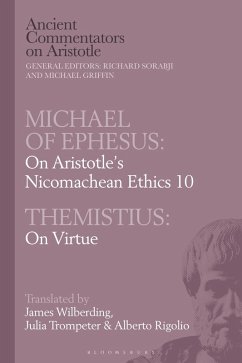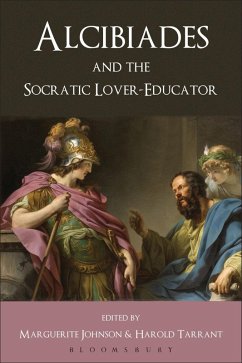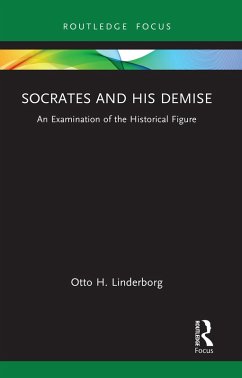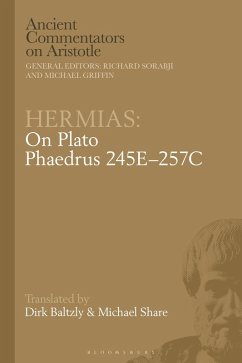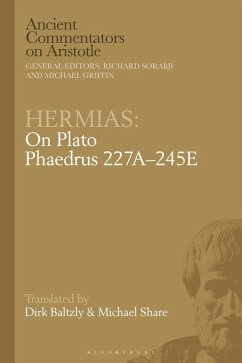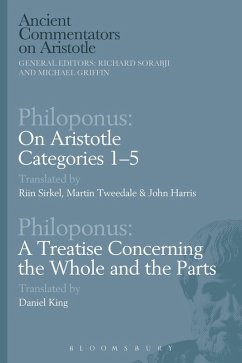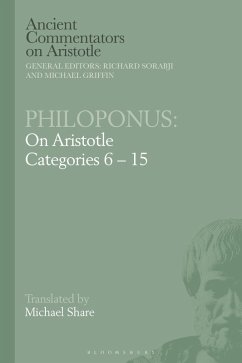
Olympiodorus: On Plato First Alcibiades 10-28 (eBook, ePUB)

PAYBACK Punkte
14 °P sammeln!
This open access book looks at Olympiodorus (AD c. 500-570), possibly the last non-Christian teacher of philosophy in Alexandria, who delivered 28 lectures as an introduction to Plato. This volume translates lectures 10-28, following from the first nine lectures and a biography of the philosopher published in translation in a companion volume, Olympiodorus: Life of Plato and On Plato First Alcibiades 1-9 (Bloomsbury, 2014). For us, these lectures can serve as an accessible introduction to late Neoplatonism. Olympiodorus locates the First Alcibiades at the start of the curriculum on Plato, beca...
This open access book looks at Olympiodorus (AD c. 500-570), possibly the last non-Christian teacher of philosophy in Alexandria, who delivered 28 lectures as an introduction to Plato. This volume translates lectures 10-28, following from the first nine lectures and a biography of the philosopher published in translation in a companion volume, Olympiodorus: Life of Plato and On Plato First Alcibiades 1-9 (Bloomsbury, 2014). For us, these lectures can serve as an accessible introduction to late Neoplatonism. Olympiodorus locates the First Alcibiades at the start of the curriculum on Plato, because it is about self-knowledge. His pupils are beginners, able to approach the hierarchy of philosophical virtues, like the aristocratic playboy Alcibiades. Alcibiades needs to know himself, at least as an individual with particular actions, before he can reach the virtues of mere civic interaction. As Olympiodorus addresses mainly Christian students, he tells them that the different words they use are often symbols of truths shared between their faiths. The ebook editions of this book are available open access under a CC BY-NC-ND 4.0 licence on bloomsburycollections.com. Open access was funded by the University of British Columbia.




